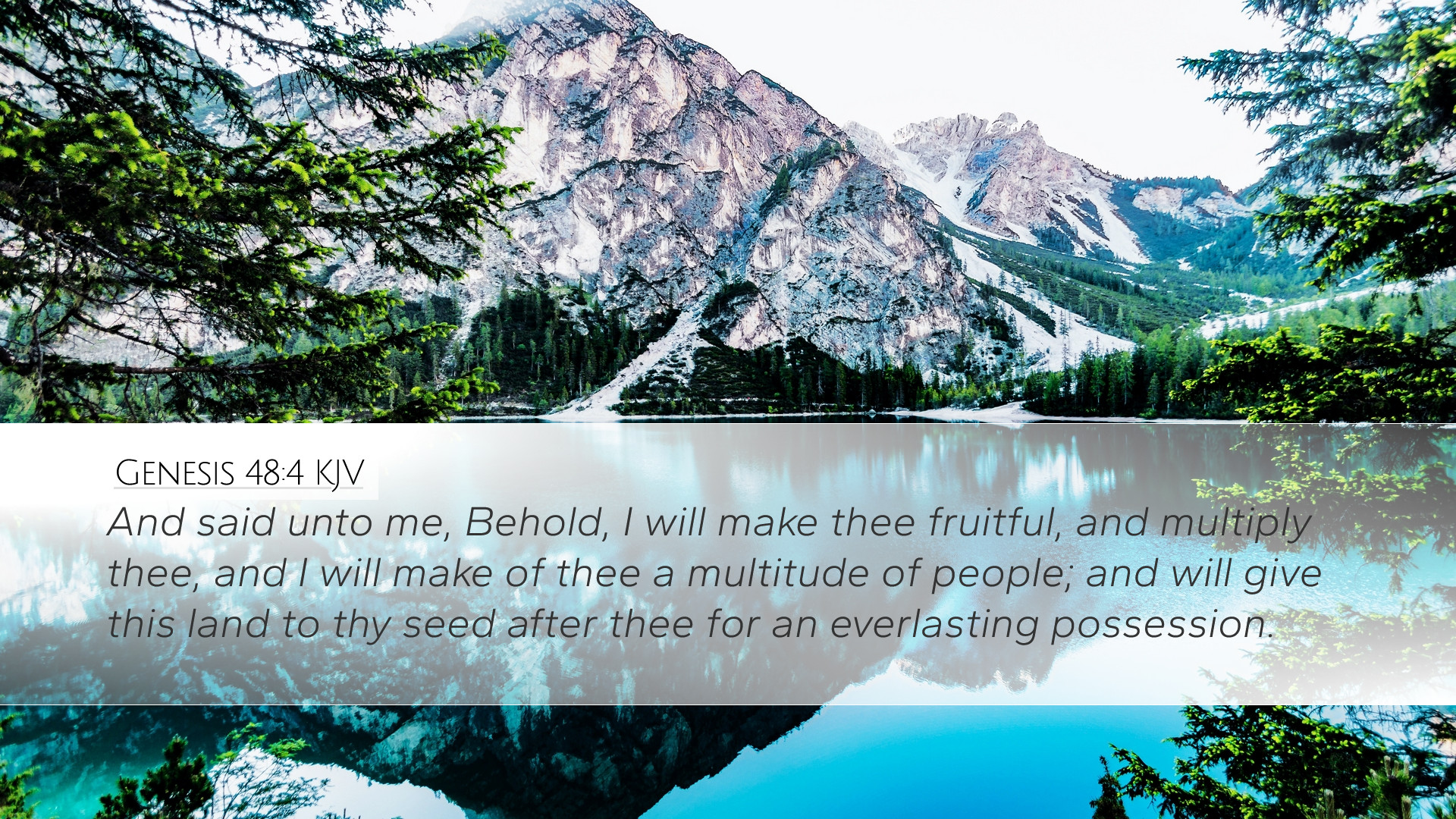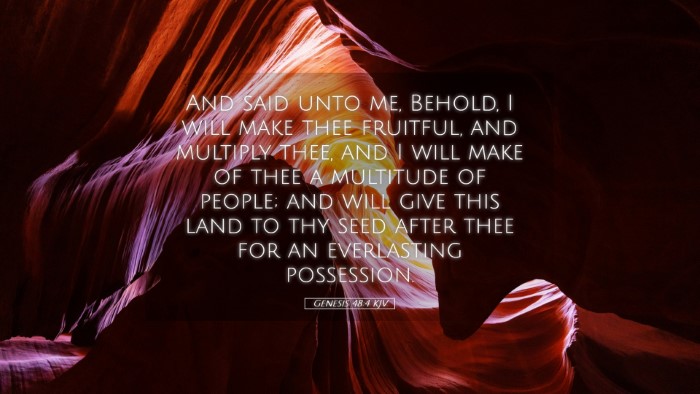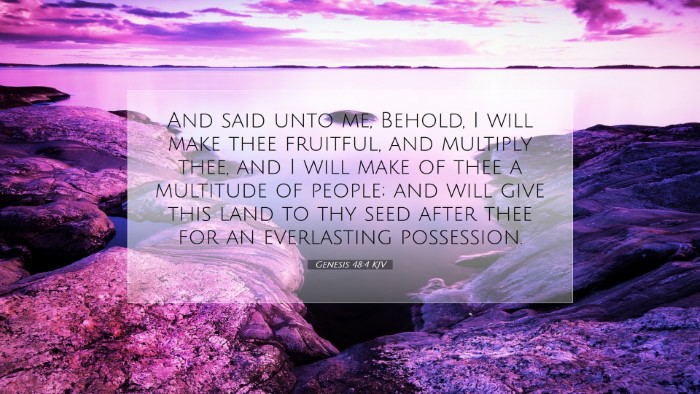Commentary on Genesis 48:4
Genesis 48:4 states: "And said unto me, Behold, I will make thee fruitful, and multiply thee, and I will make of thee a multitude of people; and will give this land to thy seed after thee for an everlasting possession."
Introduction
This verse is part of a significant narrative in which Jacob, on his deathbed, blesses his grandsons, Ephraim and Manasseh, the sons of Joseph. Jacob recalls the promises made to him by God, reflecting on their implications for his posterity. The implications of this verse are profound, as they relate to God’s covenant with Israel and the broader themes of blessing, inheritance, and divine faithfulness.
The Historical Context
In tracing the lineage of the Israelites, it is crucial to recognize the historical backdrop of their journey. The promise mentioned in Genesis 48:4 references the covenant made with Abraham and reiterated to Isaac, and then Jacob (Israel). The assurance of fruitfulness and multiplication is a central theme that underscores the ongoing narrative of God’s chosen people.
The Nature of the Promise
According to Matthew Henry, this promise reflects the divine intention to ensure that Jacob’s descendants would not only be numerous but also possess the land of Canaan. This land is described as an everlasting possession, indicating the everlasting nature of God’s covenant with His people, rooted in divine providence.
Fruitfulness and Multiplication
Albert Barnes highlights that fruitfulness and multiplication are not merely physical or numerical increases but denote spiritual and relational growth. They embody the idea of a nation built upon the principles of God’s covenant and the faithfulness of His character.
Theological Implications
Covenantal Faithfulness
Jacob's declaration is a testimony to God’s unwavering commitment to His promises. Adam Clarke remarks that the reiteration of this promise serves to affirm the covenantal relationship God maintains with His people. The promise is not only personal to Jacob but extends to his descendants, emphasizing God’s fidelity across generations.
Impacts on Future Generations
This verse emphasizes the importance of legacy and heritage within the biblical tradition. The implications for pastors and theologians lie in understanding the weight of passing down faith and blessings through generations, much like Jacob did with Ephraim and Manasseh. The metaphor of land is significant, representing not only physical space but spiritual inheritance as well.
The Significance of Land
The land is a recurring motif in biblical theology. The promise that it will be given to Jacob’s seed is a foreshadowing of Israel’s eventual possession of Canaan. As noted by Henry, the land is symbolic of God's physical provision and spiritual sustenance, representing His readiness and ability to fulfill His promises.
Everlasting Covenant
God's promise of the land being an "everlasting possession" suggests that His purposes transcend time. Barnes suggests that this reflects the eternal nature of God’s covenant—one that extends beyond Israel to encompass the redemption narrative culminating in Jesus Christ. The blessings originally intended for Israel are a part of the greater plan for humanity's reconciliation with God.
Practical Applications
For Pastors
- Encouragement of Multigenerational Faith: Pastors can draw from this verse the importance of nurturing faith within families, instilling values and beliefs that echo through generations.
- Understanding God’s Promises: Encouraging congregations to trust in the faithfulness of God’s promises is critical, especially during challenging times.
For Students and Scholars
- Theological Reflection: Engage with the text through the lens of covenant theology, exploring how it applies to contemporary discussions of faith and identity.
- Historical Contextualization: Understanding the historical and cultural contexts can inform deeper insights into the text’s implications for the ancient and modern world.
Conclusion
Genesis 48:4 serves as a reminder of God’s enduring promises to His people. Through this verse, we see the beautiful interplay of legacy, faith, and hope. The insights gathered from Henry, Barnes, and Clarke not only enrich our understanding of this specific promise but also challenge us to embrace our roles in the ongoing narrative of God’s redemptive work.


